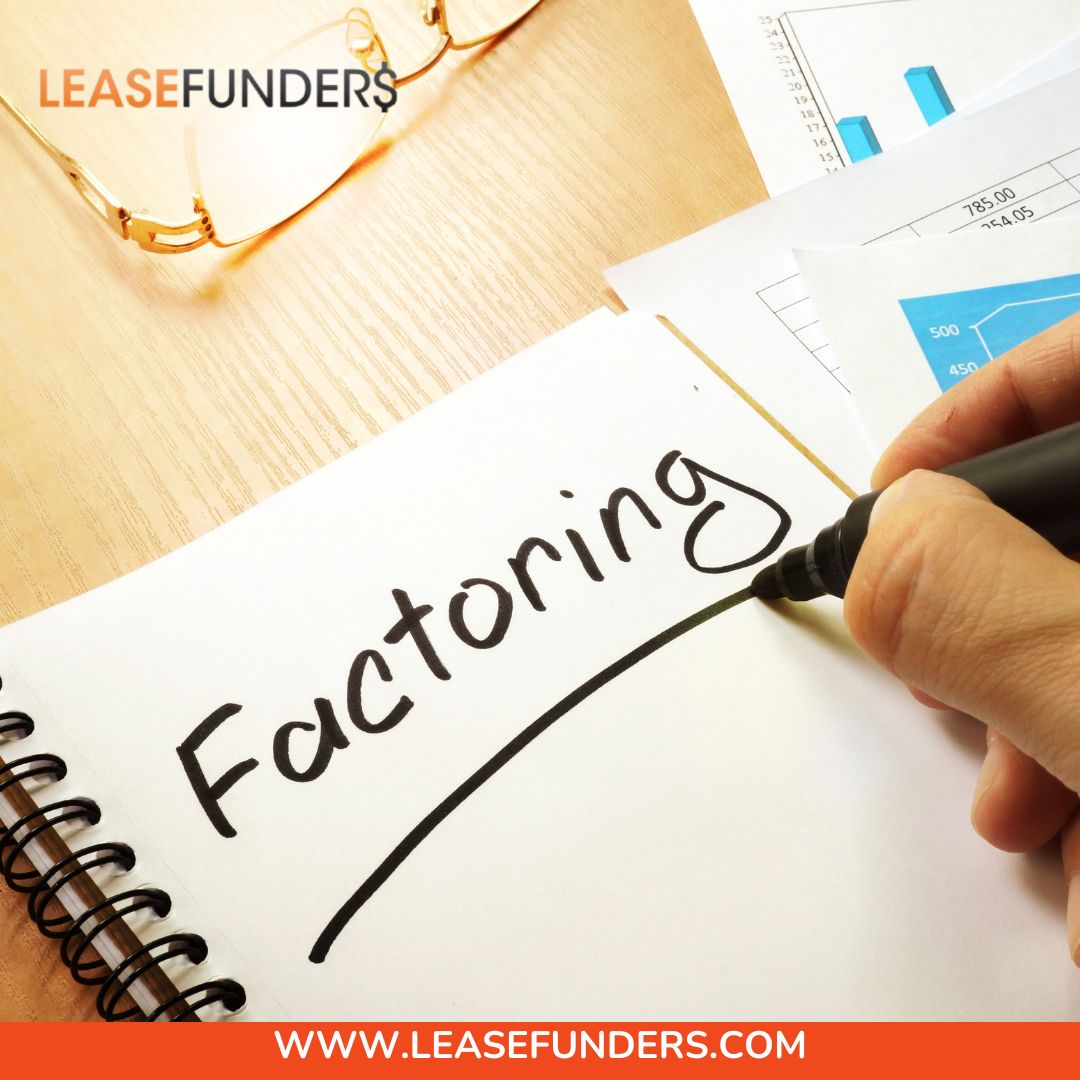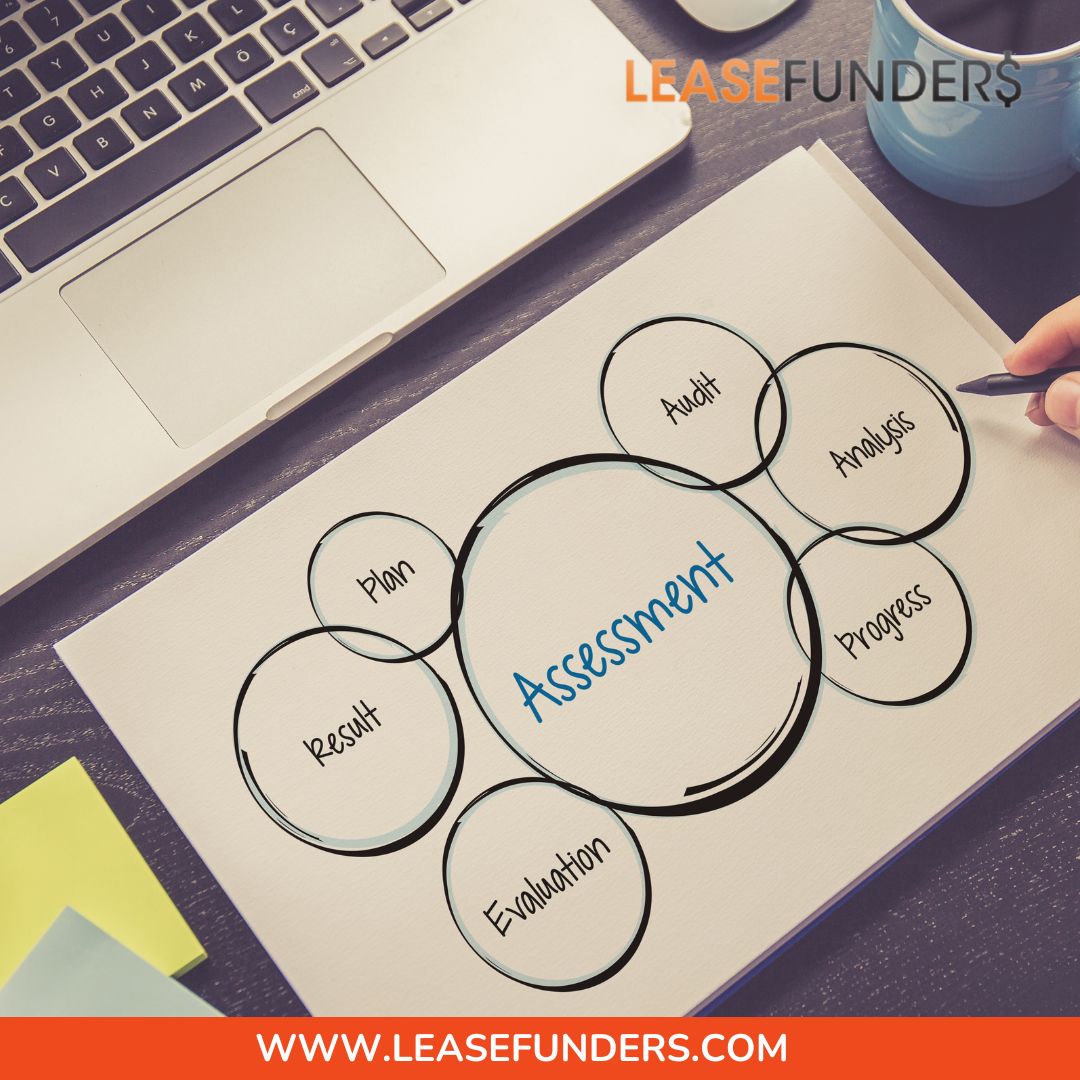Securing the necessary capital to sustain or grow a business is one of the most significant challenges entrepreneurs face. For many, the thought of tying up valuable assets as collateral for a loan can be daunting or even impossible. This is where an unsecured business line of credit become invaluable. Unlike traditional loans, unsecured credit lines provide access to funds without requiring physical collateral, offering a lifeline to businesses that need flexibility and quick access to working capital.
Unsecured business financing opens doors for startups, small businesses, and established enterprises alike. Whether it’s covering day-to-day expenses, funding inventory purchases, or taking on large client orders, these credit options help businesses manage cash flow without risking property, equipment, or personal assets.
In this article, we’ll break down the various types of unsecured business lines of credit available today. From factoring and merchant cash advances to purchase order financing and revenue-based loans, each option serves a different purpose and caters to specific industries. We’ll explore the qualifications, credit score requirements, and suitability for startups or growing businesses.
Understanding your options is the first step toward leveraging these financial tools effectively. By the end of this guide, you’ll have a clearer picture of which unsecured credit line fits your business needs, ensuring you make informed decisions that drive growth and stability.
In this article, we’ll take a look at:
- Types of Unsecured Business Lines of Credit
- Cash Flow-Based Bridge Loans
- Merchant Cash Advances (MCA)
- Factoring (Accounts Receivable Financing)
- Purchase Order (PO) Financing
- Revenue-Based Financing
- Equipment Leasing and Financing
- Business Lines of Credit (Traditional Unsecured)
- Inventory Financing
- Subscription-Based Financing
- Business Credit Cards
- Key Factors Lenders Consider
- How to Choose the Right Unsecured Line of Credit for Your Business
- Pros and Cons of Unsecured Business Lines of Credit
- Conclusion
Types of Unsecured Business Lines of Credit
Unsecured business lines of credit offer diverse solutions for entrepreneurs and established businesses that need access to capital without leveraging assets. Each option serves different industries and financial needs, providing flexibility and growth opportunities without the burdens of traditional loans. Below is a breakdown of nine key types of unsecured business credit, including their requirements, startup accessibility, credit score thresholds, and typical industry use cases.
 1. Cash Flow-Based Bridge Loans (Low-Interest Alternative to MCA)
1. Cash Flow-Based Bridge Loans (Low-Interest Alternative to MCA)
Description:
Cash flow-based bridge loans offer short-term financing by leveraging a company’s revenue without requiring physical collateral. Unlike merchant cash advances (MCAs), these loans come with significantly lower interest rates, making them an attractive option for businesses with strong credit and healthy cash flow. They provide fast access to capital while avoiding the high fees typically associated with MCAs.
Requirements:
- Credit Score: 680+
- Open to Startups: Limited – typically requires 1 year in business and stable revenue
- Typical Industries: Construction, healthcare, professional services, retail, and manufacturing
Best Use Cases:
This loan is ideal for businesses that generate consistent cash flow and need affordable short-term funding to manage operations, cover payroll, purchase inventory, or take on larger contracts. It’s an excellent option for businesses that qualify but want to avoid the high costs of MCAs.
2. Merchant Cash Advances (MCA)

A merchant cash advance provides a lump sum upfront in exchange for a percentage of future credit card sales. While technically not a loan, it offers fast access to cash without the need for traditional credit checks or collateral.
Requirements:
- Credit Score: 500-600 (credit score is less critical than revenue)
- Open to Startups: Limited – typically requires 3-6 months of business operations
- Typical Industries: Retail, restaurants, e-commerce, service businesses
Best Use Cases:
MCAs are useful for businesses with steady sales but limited creditworthiness. They work well for short-term needs like equipment purchases, payroll, or emergency expenses.
3. Factoring (Accounts Receivable Financing)

Factoring allows businesses to sell unpaid invoices to a third party at a discount, receiving immediate cash in return. This option focuses more on the creditworthiness of clients than the business itself.
Requirements:
- Credit Score: 600+ (varies, but more weight is placed on customer credit)
- Open to Startups: Yes, as long as there are invoices to factor
- Typical Industries: Manufacturing, logistics, healthcare, staffing agencies
Best Use Cases:
Factoring is perfect for businesses waiting on large invoices, helping improve cash flow without waiting for customers to pay.
4. Purchase Order (PO) Financing

PO financing provides capital to fulfill large purchase orders by covering supplier costs directly. Lenders pay suppliers, allowing businesses to complete orders and receive payment after delivery.
Requirements:
- Credit Score: 600+
- Open to Startups: Yes, if purchase orders exist
- Typical Industries: Wholesalers, suppliers, manufacturers
Best Use Cases:
This is an excellent option for businesses with large orders but limited cash flow, allowing them to take on more substantial clients and grow.
5. Revenue-Based Financing
Description:

Requirements:
- Credit Score: 550+
- Open to Startups: Rare – usually requires 6+ months of revenue
- Typical Industries: SaaS, retail, service businesses
Best Use Cases:
Ideal for businesses with predictable sales, such as subscription-based companies or seasonal businesses.
6. Equipment Leasing and Financing

Equipment leasing allows businesses to rent essential equipment without a large upfront cost. Financing may also be available for purchasing equipment over time.
Requirements:
- Credit Score: 620+
- Open to Startups: Yes
- Typical Industries: Construction, healthcare, manufacturing, logistics
Best Use Cases:
Best for companies that need expensive equipment but lack the capital for a full purchase.
7. Business Lines of Credit (Traditional Unsecured)

A revolving credit line that can be drawn upon as needed, this option offers flexibility for working capital, payroll, and unexpected expenses.
Requirements:
- Credit Score: 680+
- Open to Startups: Yes, with strong credit and personal guarantees
- Typical Industries: All industries
Best Use Cases:
Perfect for businesses that need a safety net for regular operations or to cover short-term funding gaps.
8. Inventory Financing

Inventory financing allows businesses to borrow against the value of their inventory. Lenders offer funds to help businesses purchase stock without tapping into other resources.
Requirements:
- Credit Score: 620+
- Open to Startups: Limited – typically requires existing inventory
- Typical Industries: Retail, e-commerce, wholesalers
Best Use Cases:
Ideal for retail businesses that need to replenish stock quickly without sacrificing cash flow.
9. Subscription-Based Financing

Subscription-based financing lends against predictable, recurring revenue from subscriptions or service contracts. This type of financing is growing in popularity for tech and media companies.
Requirements:
- Credit Score: 600+
- Open to Startups: Yes, if subscription contracts are secured
- Typical Industries: SaaS, telecom, media
Best Use Cases:
Subscription-based financing helps companies scale quickly without giving up equity or using traditional loans.
10. Business Credit Cards

Business credit cards are one of the simplest and most accessible forms of unsecured financing. They offer revolving credit with set limits, allowing businesses to manage expenses, earn rewards, and cover unexpected costs.
Requirements:
- Credit Score: 680+ (higher scores may qualify for better rates and rewards)
- Open to Startups: Yes, personal guarantees are often required
- Typical Industries: Freelancers, consultants, e-commerce, retail, service-based businesses
Best Use Cases:
Business credit cards are ideal for covering operational expenses, office supplies, travel, and minor cash flow gaps. They are a flexible tool for new businesses that may not yet qualify for larger credit lines.
Need Financing? Let’s Match You with the Right Lender
Navigating the world of unsecured business lines of credit can feel overwhelming, but you don’t have to go through it alone. Whether you’re a startup looking for your first round of funding or an established business in need of flexible financing, we specialize in helping businesses like yours access the right type of unsecured credit. From factoring to merchant cash advances, we can guide you through the process and connect you with lenders that fit your needs.
Now, let’s dive into the key factors that lenders consider when approving unsecured lines of credit.
Key Factors Lenders Consider
When applying for unsecured business lines of credit, lenders assess several critical factors to determine eligibility and risk. Unlike traditional loans, where physical assets back the financing, unsecured credit relies heavily on the financial health and stability of the business and its owner. Understanding these factors can help you better prepare for the application process and improve your chances of approval.
1. Creditworthiness and Credit Score

- Strong Credit (680+): Opens doors to traditional lines of credit and business credit cards.
- Fair Credit (600-680): Can qualify for factoring, revenue-based financing, or merchant cash advances.
- Poor Credit (Below 600): Options are limited to merchant cash advances or revenue-based loans with higher fees.
Tip: Monitor your credit regularly and work on addressing any outstanding debts to improve your score.
2. Business Revenue and Cash Flow
Lenders want to see consistent revenue and positive cash flow to ensure you can repay the credit line. They may request bank statements, tax returns, and profit-and-loss statements to assess financial health.
- Steady Revenue: Increases the chances of qualifying for revenue-based financing, factoring, and traditional lines of credit.
- Seasonal or Fluctuating Revenue: May lead lenders to recommend merchant cash advances or inventory financing, as repayments adjust based on income.
Tip: Maintain organized financial records to provide clear, transparent data to lenders.
 3. Time in Business
3. Time in Business
Startups can face challenges securing unsecured credit. However, some options are available to younger businesses, particularly if they have contracts or purchase orders.
- 1 Year or More in Business: Increases eligibility for most types of unsecured credit.
- Under 1 Year: Focus on factoring, purchase order financing, and business credit cards.
Tip: Even if you’re a startup, demonstrating growth and client contracts can boost lender confidence.
4. Industry Type and Risk Level
Certain industries are more attractive to lenders due to predictable cash flow and lower risk. Others, like restaurants or retail, may have more limited options due to higher default rates.
- Low-Risk Industries: Healthcare, logistics, technology, and professional services.
- Higher-Risk Industries: Retail, construction, and hospitality.
Tip: If your industry is considered high-risk, focus on merchant cash advances, factoring, or revenue-based loans.
How to Choose the Right Unsecured Line of Credit for Your Business
Maximize Growth Without Risking Assets – Pick the Best Credit Option for Your Needs
Choosing the right unsecured business line of credit can make the difference between steady growth and financial strain. Each type of credit serves a unique purpose, and selecting the wrong one can lead to higher fees, unnecessary debt, or cash flow issues. To ensure you’re making the best decision for your business, consider these essential factors:
 1. Assess Your Business Needs
1. Assess Your Business Needs
Start by identifying why you need the credit line. Is it to cover daily expenses, bridge cash flow gaps, or fulfill large orders? Matching the right credit option to your goals prevents overborrowing or underfunding.
- For Short-Term Gaps: Merchant cash advances or business credit cards.
- For Large Orders or Inventory: Purchase order financing or inventory financing.
- For Outstanding Invoices: Factoring.
Tip: Always borrow with a purpose in mind. Unsecured credit is convenient, but costs can add up if used unnecessarily.
2. Compare Interest Rates and Fees
Unsecured credit typically comes with higher interest rates than traditional loans. However, rates can vary significantly between credit types and lenders.
- Low to Moderate Rates: Business credit cards and traditional unsecured lines.
- Higher Rates: Merchant cash advances and factoring.
Tip: Review the total cost of borrowing, including fees and repayment terms, not just the interest rate.
 3. Evaluate Repayment Flexibility
3. Evaluate Repayment Flexibility
Some credit lines, like revenue-based financing and MCAs, offer repayments that adjust based on sales. Others, like credit cards, have fixed minimum payments.
- Flexible Repayment: Merchant cash advances and revenue-based loans.
- Fixed Repayment: Business credit cards and equipment leasing.
Tip: Choose a repayment structure that aligns with your cash flow. Flexible payments help during slow seasons, while fixed payments are better for predictable revenue streams.
4. Consider Qualification Requirements
Each credit line has different requirements regarding credit score, revenue, and time in business.
- Easier to Qualify: Factoring, MCAs, and revenue-based loans.
- Stricter Requirements: Business credit cards and traditional unsecured lines.
Tip: If you have a lower credit score, focus on factoring or MCAs to get started, then build up to better credit options.
5. Think About Long-Term Impact
Unsecured credit can fuel growth, but mismanagement can harm your credit score and cash flow. Consider the long-term implications of each financing option.
- Short-Term Solutions: Merchant cash advances and purchase order financing.
- Ongoing Support: Revolving credit lines and factoring.
Tip: Balance short-term needs with long-term planning to ensure sustainable growth.
Pros and Cons of Unsecured Business Lines of Credit
Weighing the Benefits and Risks – Is Unsecured Credit the Right Fit for Your Business?
Unsecured business lines of credit can be a game-changer for entrepreneurs who need capital quickly and without the hassle of collateral. However, like any financial tool, they come with both advantages and potential drawbacks. Understanding these pros and cons will help you make informed decisions and use unsecured credit strategically.
Pros of Unsecured Business Lines of Credit
- No Collateral Required
One of the biggest benefits is that you don’t have to put personal or business assets on the line. This reduces risk and allows newer businesses or those without significant assets to access funding.
- Why It Matters: Protects valuable assets like real estate, equipment, or inventory.
- Quick Access to Funds
Unsecured credit lines are typically faster to approve than traditional loans. Some options, like merchant cash advances or factoring, can provide cash in as little as 24-48 hours.
- Why It Matters: Ideal for emergencies, growth opportunities, or unexpected expenses.
- Flexible Spending
Unlike term loans that must be used for specific purposes, most unsecured credit lines allow you to spend as needed. Whether it’s payroll, inventory, or marketing, you control how the funds are allocated.
- Why It Matters: Supports diverse business needs without restrictions.
- Builds Credit and Reputation
Responsible use of unsecured credit can help establish or improve your business credit score, making it easier to secure larger funding in the future.
- Why It Matters: Opens doors to better financial products with lower rates.
- Available to Startups and Small Businesses
Many unsecured options, like business credit cards and revenue-based financing, are accessible to startups and small businesses that might not qualify for traditional loans.
- Why It Matters: Provides essential working capital for early-stage growth.
Cons of Unsecured Business Lines of Credit
- Higher Interest Rates and Fees
Because lenders take on more risk with unsecured credit, interest rates and fees tend to be higher than secured loans. This can increase the overall cost of borrowing.
- Why It Matters: Can eat into profits if not managed carefully.
- Lower Credit Limits
Unsecured lines often have lower borrowing limits compared to secured loans. This may not be sufficient for large-scale projects or major expansions.
- Why It Matters: Limits how much capital is available at once.
- Credit Score Dependency
Many unsecured options require a strong personal or business credit score to qualify. Poor credit can lead to rejection or extremely high rates.
- Why It Matters: Can restrict access for businesses with credit challenges.
- Shorter Repayment Terms
Some unsecured credit, like merchant cash advances or factoring, requires quick repayment, sometimes within months. This can create cash flow strain.
- Why It Matters: May disrupt long-term financial planning.
5. Potential for Debt Cycle
The flexibility of unsecured credit can lead to over-reliance, creating a cycle of debt if funds are mismanaged.
- Why It Matters: Can negatively impact business health and growth.
How to Mitigate Risks:
- Compare lenders carefully – focus on total borrowing costs, not just the interest rate.
- Only borrow what you can realistically repay within the term limits.
- Use unsecured credit strategically for growth or short-term gaps, not ongoing expenses.
Conclusion
Secure the Funding You Need – Without the Risk

Don’t let a lack of collateral stand in the way of your success. With the right guidance and financing partner, you can access the capital you need quickly and efficiently. We specialize in helping businesses just like yours secure funding through the best unsecured credit options available.
Call us today at 888-307-8781 to discuss your financing options and get the process started. Let’s find the right unsecured line of credit that will help your business thrive.
Your next opportunity could be just a phone call away – don’t miss out!



 1.
1.  3. Time in Business
3. Time in Business 1. Assess Your Business Needs
1. Assess Your Business Needs 3. Evaluate Repayment Flexibility
3. Evaluate Repayment Flexibility


